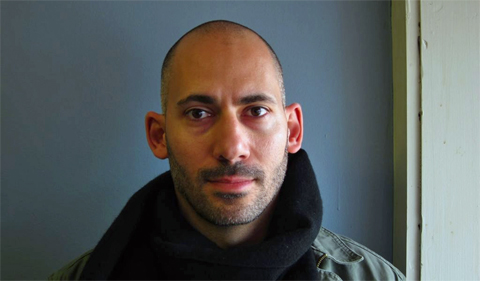
Dr. Ziad Abu-Rish
Dr. Ziad Abu-Rish, Assistant Professor of History and Director of the Middle East and North Africa Certificate Program, discussed U.S. policy in the Middle East on WOUB’s Spectrum Podcast headlined “Iran’s Strength is the Primary Target of the Trump Team in the Middle East.”
Hosted by Spectrum‘s Tom Hodson, the nearly 40-minute interview covered a range of issues, including the Trump administration’s decisions regarding ground troops in Syria, the anti-ISIS campaign, and escalations with Iran.
Abu-Rish believes the U.S. withdrawal from Syria is “a good thing” in light of his assessment that “the U.S. presence in Syria is a very convoluted one that has competing interests motivating it, and as a result has been ineffective and done more harm than good.” Speaking directly to the fate of the Kurdish groups the U.S. is currently allied with, Abu-Rish noted:
I think the real question, Tom, is if the groups on the ground, especially the SDF (the primary Kurdish political group in the parts of Syria that we are talking about) will be allowed to negotiate and put in place arrangements with the Syrian regime that will allow them to avoid the possible intervention and confrontation with Turkish military forces. That is a primary goal of the SDF and other forces on the ground in trying to negotiate with the Syrian government.
But you might be aware that very recently the U.S. government has come out and actually said that it opposes the Kurdish groups making any arrangements or cooperation with the Syrian regime.
In his response to a question about President Donald Trump’s declaration of a complete victory over ISIS, Abu-Rish argued:
I think we should be clear that it was U.S. policies that helped produce the conditions for ISIS, which began in Iraq as a result of the complete destruction and societal breakdown in the aftermath of the 2003 U.S. invasion and subsequent occupation and policies of restructuring Iraqi society, politics, and economics. And so for the United States to claim credit for defeating ISIS without taking responsibility for creating the conditions that led to its emergence is, I think, disingenuine and not really a transparent accounting of what transpired in Syria and Iraq. I also think we need to take into account that the coalition airstrikes and artillery strikes against supposed ISIS targets in Iraq and Syria have resulted in some of the most dramatic accounts of collateral damage as far as civilian populations are concerned.
Abu-Rish also discussed the U.S. policy with respect to Iran. He pointed to the Trump administration’s “significant and systematic escalation of anti-Iran rhetoric and policy.” Asked specifically about the possibility of a confrontation, he said, “I do not think it is responsible to rule out a potential military conflict with Iran given who is in the White House and given the team of people surrounding President Donald Trump.”
Listen to the complete interview in the Feb. 20 episode of Spectrum.
For more on Abu-Rish, visit his History Department profile page.




















Comments